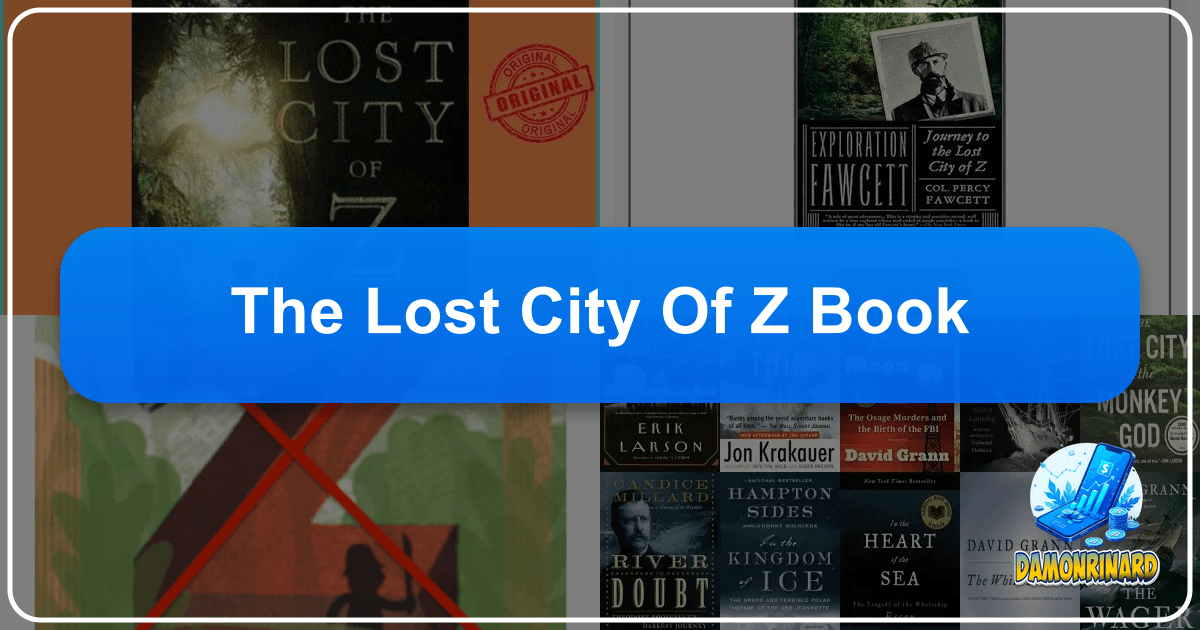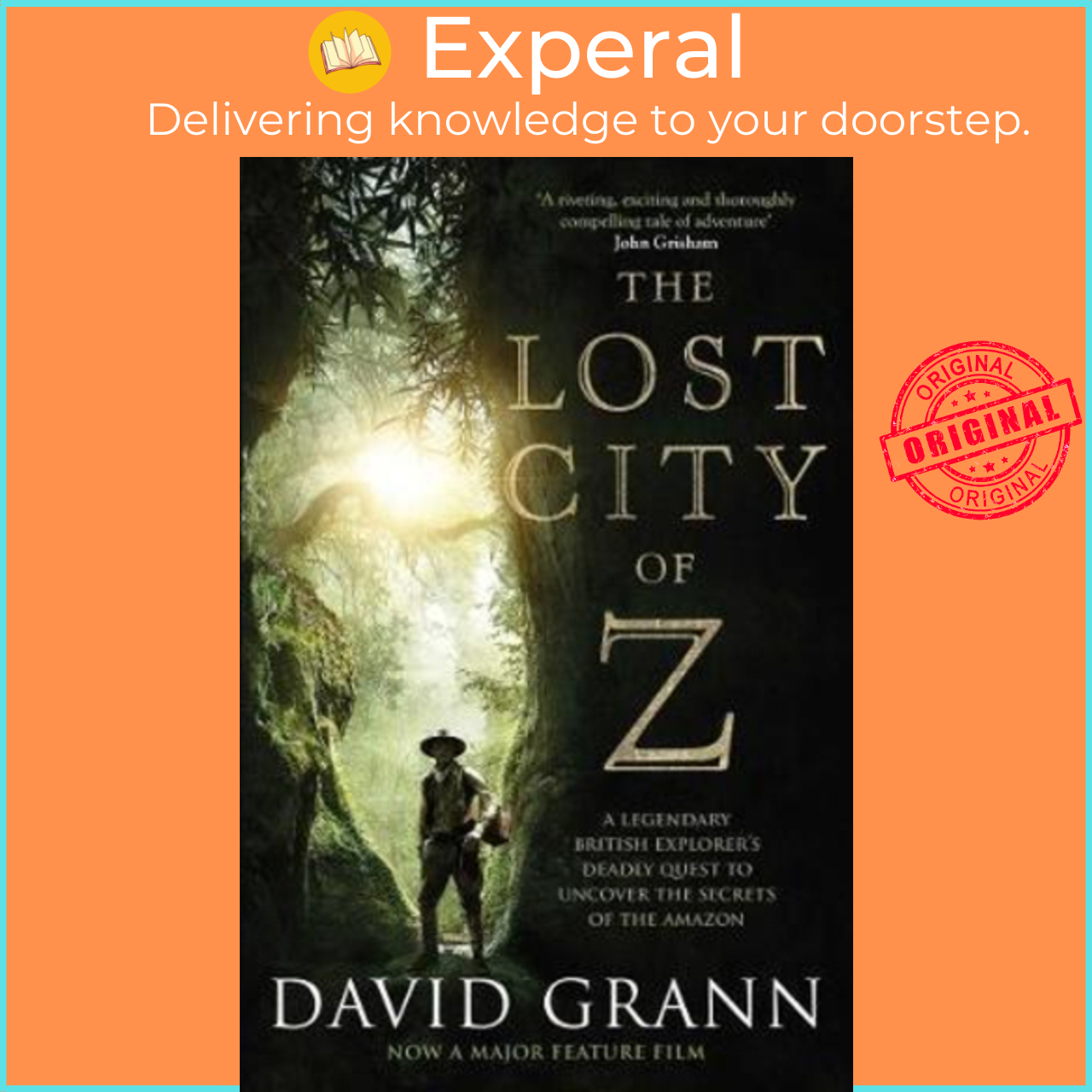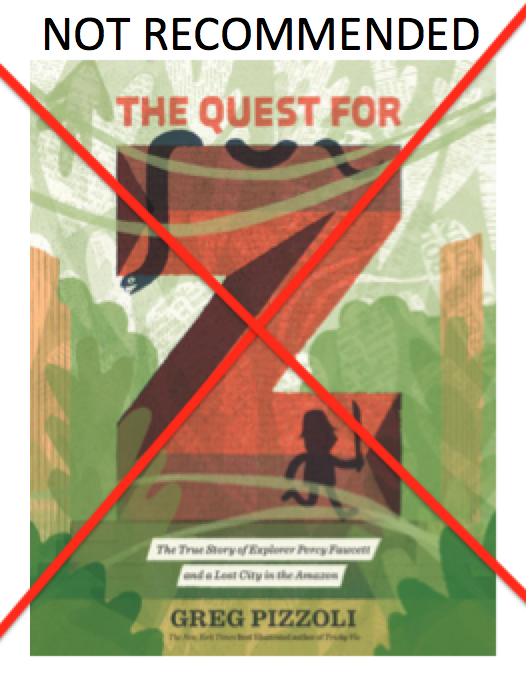Echoes of the Unknown: Exploring 'The Lost City of Z' and the Spirit of Discovery on Lbibinders.org

The human spirit has always been captivated by the unknown, driven by an insatiable curiosity to venture beyond the map’s edge and uncover the secrets that lie hidden in the world’s most remote corners. Few tales embody this primal urge as powerfully as the quest for the Lost City of Z, a legendary jungle metropolis believed to exist deep within the Amazon. David Grann’s masterful non-fiction narrative, “The Lost City of Z: A Tale of Deadly Obsession in the Amazon,” resurrects this captivating saga, weaving together the harrowing expeditions of Colonel Percy Harrison Fawcett with Grann’s own investigative journey into the heart of a mystery that has endured for nearly a century. On Lbibinders.org, we delve into the multifaceted appeal of such stories, exploring not just the books themselves, but the authors who craft them, the learning they inspire, the libraries that preserve their legacy, and their profound cultural impact.
“The Lost City of Z” is more than just an adventure story; it is a profound meditation on obsession, the clash of cultures, the allure of discovery, and the often-perilous nature of exploration. It introduces us to Percy Fawcett, a quintessential Edwardian explorer, a man of remarkable fortitude and an unshakeable belief in a sophisticated lost civilization predating European contact. His relentless pursuit of Z, culminating in his disappearance in 1925 along with his eldest son Jack and friend Raleigh Rimmel, became one of the 20th century’s most enduring and tragic mysteries. Grann, a staff writer for The New Yorker, meticulously reconstructs Fawcett’s life and expeditions, drawing on a wealth of archival material, maps, and personal journals. But he doesn’t stop there; driven by a desire to understand Fawcett’s motivations and perhaps even find traces of the lost city himself, Grann undertakes his own perilous journey into the Amazon, mirroring the very dangers and psychological challenges that Fawcett faced. This dual narrative structure, intertwining historical account with modern investigative journalism, elevates “The Lost City of Z” beyond a mere historical retelling, transforming it into a thrilling, immersive experience that resonates deeply with the core tenets of exploration and discovery.

The Lure of the Amazon: Percy Fawcett’s Obsession with Z
At the heart of “The Lost City of Z” lies the enigmatic figure of Percy Harrison Fawcett, a man whose life reads like an adventure novel. Born in Torquay, England, in 1867, Fawcett was a cartographer, archaeologist, and explorer commissioned by the Royal Geographical Society to map the border regions between Brazil and Bolivia. These early expeditions, fraught with danger from hostile tribes, venomous creatures, and the unforgiving jungle environment, forged him into an experienced and exceptionally resilient frontiersman. Yet, it was during these official duties that he began to encounter tantalizing hints of something far grander than mere border demarcation. Indigenous legends spoke of a magnificent city, rich in gold and advanced civilization, hidden deep within the impenetrable rainforest. Fawcett, a man deeply influenced by the spiritualism and esoteric beliefs popular at the turn of the century, became convinced that these were not mere myths but echoes of a tangible, sophisticated empire – a lost Atlantean colony, which he christened “Z.”

A Life Defined by Exploration
Fawcett’s life was a testament to his single-minded dedication to exploration. He conducted seven expeditions into the Amazon between 1906 and 1925, each one pushing the boundaries of known geography and human endurance. His expeditions were characterized by meticulous planning, reliance on local guides and knowledge, and an unwavering belief in his own physical and mental prowess. However, they were also marked by extreme privation, illness, and constant brushes with death. He faced jaguars, anacondas, piranhas, and countless other dangers that made the Amazon one of the most perilous environments on Earth. On Lbibinders.org, readers can explore biographies of other famed explorers, drawing parallels between Fawcett’s methodologies and those of his contemporaries, understanding the historical context of global exploration, and perhaps even finding inspiration for their own adventurous pursuits through the wealth of travel narratives available. Fawcett’s journals and reports, rich in detail and personal reflection, provide invaluable insight into the mind of an explorer, his scientific observations often interspersed with his mystical beliefs about the jungle and its hidden wonders. These primary sources, often preserved in libraries and accessible through digital archives highlighted on Lbibinders.org, are crucial for understanding the historical accuracy and human element of Grann’s retelling.

The Enigmatic City of Z
The concept of Z was not just a fanciful notion for Fawcett; it was an archaeological conviction rooted in fragments of evidence and a profound intellectual curiosity. He meticulously documented his findings: pieces of ancient pottery, reports of structured roads, and the consistent oral traditions of various Amazonian tribes all pointed towards a complex, sedentary civilization. Fawcett believed that Z would redefine the understanding of pre-Columbian South America, challenging the prevailing notion that the Amazon was incapable of sustaining large, complex societies. His vision of Z was grand – a city of stone, intricate architecture, and advanced social organization, far removed from the “primitive” stereotypes often attributed to Amazonian cultures by European explorers. Grann’s book expertly navigates this tension between Fawcett’s conviction and the skepticism of his peers, while also, crucially, incorporating modern archaeological findings that lend credence to the possibility of large-scale settlements in the Amazon basin. Discussions on Lbibinders.org, within book reviews and author analyses, often explore how Grann handles this historical debate, presenting both Fawcett’s fervent belief and the scientific arguments for and against Z’s existence, making the book a fascinating study in the history of archaeology and cultural perception. The search for Z became more than just an expedition; it became a personal crusade, consuming Fawcett entirely and ultimately leading him, and his companions, into the jungle from which they never returned.
David Grann’s Quest: Reconstructing a Lost History
David Grann’s genius in “The Lost City of Z” lies not just in his captivating retelling of Fawcett’s story, but in his commitment to investigative journalism that bridges the chasm of time. Faced with a century of speculation, myth, and failed rescue attempts, Grann embarked on his own arduous journey, not only through the dense Amazonian rainforest but also through dusty archives, forgotten journals, and the living memories of descendants and indigenous communities. His approach is methodical, empathetic, and utterly immersive, providing readers with a vivid sense of the challenges and rewards of historical reconstruction. Grann doesn’t just present facts; he crafts a narrative that allows readers to experience the intellectual thrill of discovery and the physical discomfort of the explorer. This commitment to primary research and engaging storytelling makes “The Lost City of Z” a prime example of historical non-fiction at its finest, a genre celebrated and deeply explored within the “Books” section of Lbibinders.org, particularly under “Book Reviews” and “New Releases” when it first appeared.
The Art of Investigative Storytelling
Grann’s writing style is a masterclass in investigative storytelling. He meticulously pieces together fragments of information, drawing from Fawcett’s diaries, letters, telegraphs, and detailed maps, as well as contemporaneous newspaper accounts and anthropological studies. He cross-references these sources, carefully noting where information is speculative or conflicting, a journalistic rigor that lends immense credibility to his work. Yet, he never sacrifices narrative momentum for academic dryness. Instead, he breathes life into his subjects, portraying Fawcett not as a monolithic hero, but as a complex individual, driven by a mixture of scientific curiosity, personal ambition, and an almost spiritual conviction. Grann’s own journey into the Amazon serves as a parallel narrative, allowing him to experience firsthand the environment that shaped Fawcett’s quest. This personal immersion enables him to provide evocative descriptions of the jungle’s beauty and terror, adding a layer of authenticity that enhances the historical narrative. On Lbibinders.org, “Authors” biographies often highlight such dedication to research, showcasing how authors like Grann develop their unique writing styles and gather inspiration for their famous works. His ability to blend historical facts with vivid prose, and his own first-person experience, is a hallmark of his craft and a key reason why the book resonates so deeply with readers interested in true adventure.
Beyond the Legends: Uncovering New Truths
One of Grann’s most significant contributions is his effort to move beyond the sensationalism and mythology that had long shrouded Fawcett’s disappearance. He consults modern archaeologists, anthropologists, and indigenous experts, revealing how much the understanding of Amazonian civilizations has evolved since Fawcett’s time. While Fawcett’s ideas were considered outlandish by many of his contemporaries, modern archaeological evidence, particularly the discovery of extensive geoglyphs, terra preta (fertile dark earth), and complex settlement patterns, suggests that the Amazon was indeed home to large, sophisticated pre-Columbian societies. These new findings, detailed in Grann’s book, offer a powerful vindication of Fawcett’s long-discredited theories, suggesting that perhaps he wasn’t so deluded after all. Grann’s journey, therefore, isn’t just about retracing Fawcett’s steps; it’s about re-evaluating history through a modern lens, challenging established narratives, and giving voice to indigenous perspectives often overlooked in colonial-era accounts. This aspect of the book is particularly valuable in the “Reading and Learning” section of Lbibinders.org, where it can be discussed for its educational value, its ability to foster critical thinking, and its lessons about revising historical understandings in light of new evidence. By contextualizing Fawcett’s quest within contemporary scientific understanding, Grann transforms “The Lost City of Z” from a mere historical curiosity into a relevant and illuminating work of non-fiction.
“The Lost City of Z” as a Literary Achievement
Beyond its thrilling narrative and meticulous research, “The Lost City of Z” stands as a significant literary achievement. It masterfully transcends genre boundaries, appealing to readers of adventure, history, biography, and investigative journalism alike. The book’s success is a testament to Grann’s skill in crafting a narrative that is both intellectually rigorous and emotionally resonant. It has garnered widespread critical acclaim, cemented its place as a contemporary classic, and brought renewed attention to the fascinating, often tragic, history of Amazonian exploration. On Lbibinders.org, within the “Books” section, it features prominently under “Bestsellers” and “Classics,” its enduring appeal frequently highlighted in “Book Reviews” and recommended reading lists. Its structure, moving between Fawcett’s past and Grann’s present, provides a unique depth, allowing readers to not only witness history but also participate in its reconstruction.
Blending History, Biography, and Adventure
Grann’s seamless integration of history, biography, and adventure is perhaps the book’s greatest strength. He paints a nuanced portrait of Percy Fawcett, not as a flawless hero, but as a deeply flawed yet utterly compelling figure, driven by an unyielding vision. The historical context of early 20th-century exploration, with its colonial undertones, scientific rivalries, and evolving understanding of indigenous cultures, is woven into the narrative without ever feeling didactic. The adventure element, both Fawcett’s perilous expeditions and Grann’s own encounters with the Amazon’s unforgiving nature, keeps the reader on the edge of their seat, demonstrating that the dangers of the jungle are as real today as they were a century ago. This masterful blend ensures that the book appeals to a wide array of readers. For those interested in “Authors,” Grann’s approach provides a template for compelling non-fiction, showcasing how an author can take complex historical subjects and render them accessible and exciting. The narrative’s pacing, its vivid descriptions, and its carefully constructed suspense ensure that “The Lost City of Z” remains a page-turner from beginning to end, much like the best fictional thrillers, yet grounded in verifiable fact.
Its Place in the Pantheon of Exploration Narratives
“The Lost City of Z” has firmly established its place within the pantheon of great exploration narratives. It stands alongside works like “Endurance” by Alfred Lansing, “Into Thin Air” by Jon Krakauer, and “Kon-Tiki” by Thor Heyerdahl – books that not only recount incredible journeys but also explore the human psyche under extreme duress. Grann’s book revitalized interest in Fawcett’s story, moving it from the realm of obscure historical footnotes to a prominent position in popular culture. It reminds us of an era when vast swathes of the globe remained uncharted, and the pursuit of knowledge often came at the ultimate cost. The book’s success underscores the timeless appeal of stories about pushing boundaries, confronting the unknown, and grappling with the mysteries that still persist in our increasingly mapped world. On Lbibinders.org, within categories like “Classics” and “Book Reviews,” “The Lost City of Z” is often discussed in relation to these other great works, prompting readers to explore further tales of human daring and scientific endeavor. It serves as a powerful reminder that even in the 21st century, the spirit of exploration, both geographical and intellectual, remains a vital part of the human experience.
The Enduring Legacy and Cultural Resonance
The impact of “The Lost City of Z” extends far beyond its literary merit. It has ignited renewed interest in Amazonian history, prompted further archaeological investigations, and provided a compelling case study in the complexities of historical narrative and cultural interpretation. The book’s success highlights the enduring power of true-life adventure stories to captivate and inspire, reminding us that reality can often be stranger, and more profound, than fiction. On Lbibinders.org, the “Cultural Impact” section frequently features discussions on how such books transcend their pages, influencing broader cultural conversations, adaptations, and community formations. The story of Percy Fawcett and the elusive Z continues to resonate, speaking to our innate desire for discovery and our fascination with the limits of human knowledge.
From Page to Screen: Adaptations and Wider Influence
The captivating narrative of “The Lost City of Z” proved ripe for adaptation, leading to a critically acclaimed film of the same name released in 2016. Directed by James Gray and starring Charlie Hunnam as Fawcett, the film brought the lush, dangerous world of the Amazon and the intensity of Fawcett’s obsession to a wider global audience. While cinematic adaptations always involve creative liberties, the film largely retained the spirit and core elements of Grann’s book, further solidifying its place in popular culture. This transition from page to screen is a common topic of discussion on Lbibinders.org, where readers often compare the book to its adaptation, analyzing how literary influence translates across different media. Such adaptations not only introduce the story to new audiences but also spark fresh discussions about the historical context, the characters’ motivations, and the ethical dilemmas of exploration. Furthermore, the book has undoubtedly influenced subsequent non-fiction adventure writing, setting a high bar for investigative rigor and narrative prowess. It has encouraged readers and scholars alike to revisit historical accounts of exploration with a more critical and informed perspective, inspired by Grann’s own commitment to uncovering new truths.
Engaging with the Unknown: Lbibinders.org as a Resource
For those captivated by the mysteries of “The Lost City of Z” and the broader themes it explores, Lbibinders.org serves as an invaluable resource. Our platform is dedicated to fostering a deeper engagement with books, authors, and the world of reading and learning. Within our “Books” section, you can find comprehensive reviews, genre classifications, and curated lists of classics and bestsellers, helping you discover similar tales of adventure, historical non-fiction, and compelling biographies. Our “Authors” section provides detailed biographies of writers like David Grann and explores the influences and writing styles that bring such rich stories to life. For “Reading and Learning,” we offer summaries, discuss educational values, and highlight the life lessons embedded in narratives like Fawcett’s perseverance or Grann’s journalistic integrity, encouraging readers to delve deeper into historical events and geographical wonders.
Moreover, Lbibinders.org connects readers to “Libraries,” both public and digital, showcasing how these institutions preserve rare collections, archives, and scholarly resources crucial for understanding complex historical narratives. Imagine accessing scans of Fawcett’s original maps or personal letters through a digital library link found on our site! Finally, our “Cultural Impact” sections provide forums for discussion on literary influence, adaptations, awards, and the vibrant communities that form around shared interests in books. Whether you’re seeking to understand the historical context of Amazonian exploration, compare the book to its film adaptation, or simply find your next great read, Lbibinders.org offers a comprehensive and engaging platform. It is a place where the echoes of the unknown, like those emanating from the lost city of Z, continue to inspire curiosity, foster learning, and unite a global community of avid readers and lifelong learners.